Mary Gafaomalietoa Sapati Moeono-Kolio is one of the Pacific Climate Warriors, part of 350 Pacific, who are fighting for the survival of their islands.
As the 53rd Pacific Islands Leaders Forum took place in Tonga last week Moeono-Kolio worked at the grassroots level within the community.
Pacific Climate Warriors or 350 Pacific is a network of young Pacific climate activists who push for local climate justice.
In Tonga they held a Build Better Now Parade to call for more urgent climate action and to celebrate Pacific resilience.
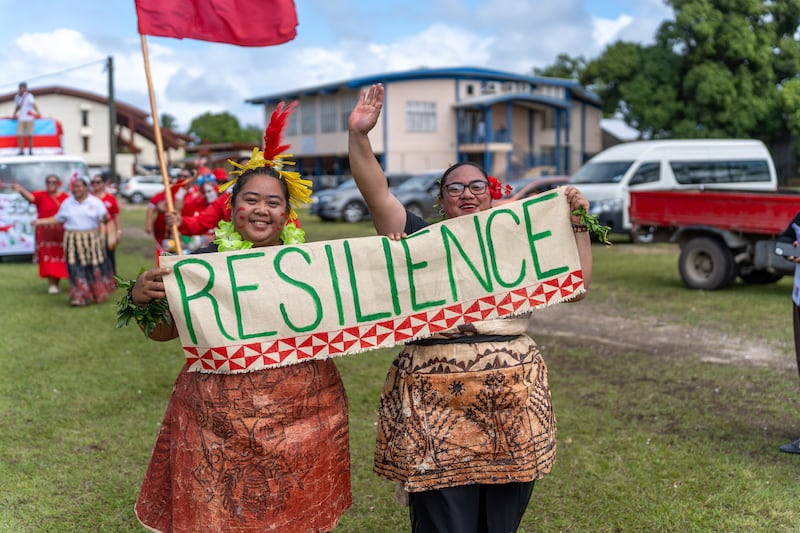
Pacific Climate Warriors ran ‘Our Pawa Training’ workshops with over 200 students across Tonga, which focused on climate campaigning, storytelling and how communities can engage in decisions impacting their islands.
Moeono-Kolio said they didn’t need to teach these students their environment was at risk because they were experiencing it day to day.
However, she said it was powerful to give words to the experience, and offer ways and tools in how they could participate in addressing the crisis and hold leaders to account.
“In terms of climate responses, the Pacific is leading both in mitigation and adaptation.”
She said the Marshall Islands was a great example in their National Adaptation Plan, where young people had taken the lead to make sure community voices were represented in the plan.
Rising sea levels and nations in grave danger
At the forum, the UN released its latest report on sea-levels rising. UN secretary-general António Guterres told the forum sea levels were rising and accelerating in an unusual and unpredictable way, with devastating impacts.
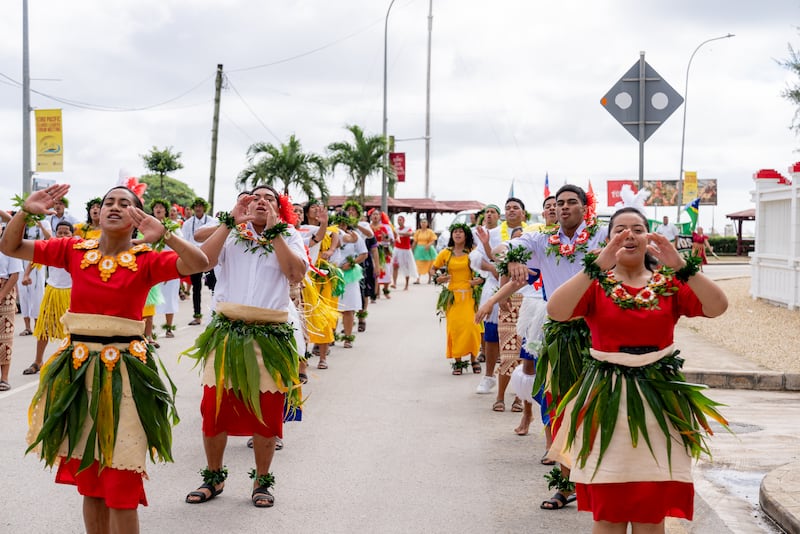
Sea level rising has more than doubled in the past 10 years - from 0.2cm a year between 1993 and 2002 to 0.48cm per year between 2014 and 2023.
Ocean temperatures are rising in the Pacific Islands at three times the rate worldwide. Guterres said marine heatwaves were more intense and long-lasting and their frequency had doubled since 1980.
Rising seas were amplifying the frequency and severity of storms, surges and coastal flooding. The floods swamped coastal communities, rural fisheries, damaged crops and contaminated fresh water.
He said this placed some island nations in grave danger and called on major polluters such as Australia to rapidly cut emissions and phase out coal and gas, which is also what Pacific nations have called for.
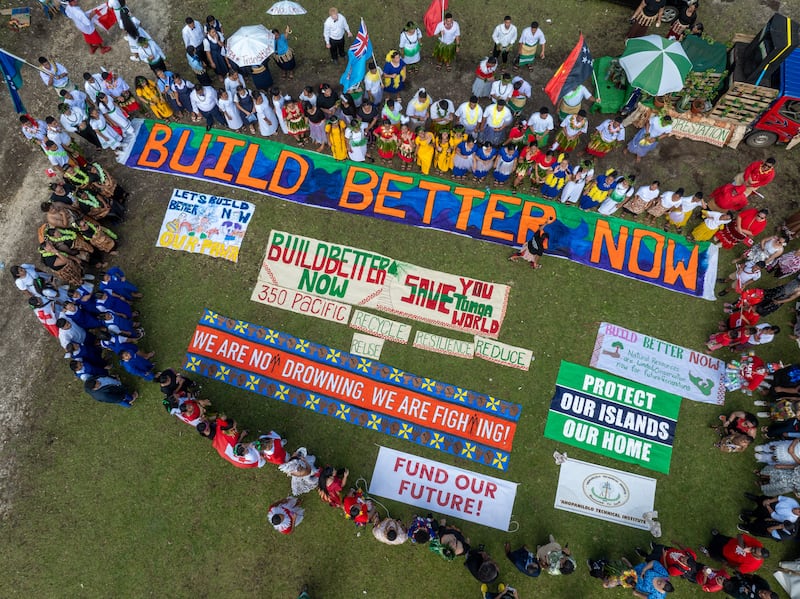
A fossil fuel non-proliferation treaty
A primary focus of 350 Pacific is the endorsement of a Fossil Fuel Non-proliferation Treaty which has been spear-headed by Tuvalu and Vanuatu.
The proposed treaty has three pillars:
- non-proliferation - ending expansion;
- phasing out - the eventual end to fossil fuel production; and
- just transition - ensuring the transition to renewable energy is just and fair.
In terms of climate work and justice, she said she hoped to see Pacific leaders hold Australia and New Zealand to account. She said Pacific leaders were really bold and upfront about what it was going to take to save their islands.
“We know it’s a phase-out of fossil fuels, it’s a transition to renewable energy, it’s endorsing something like a fossil fuel treaty, it’s ensuring you have civil society and grassroots community voice in discussions like the Pacific Islands Forum.”
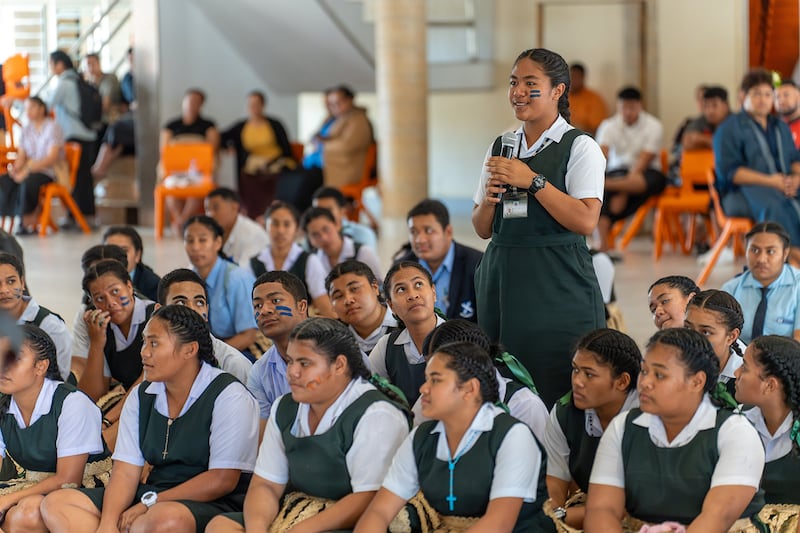
The unfair power dynamic
Moeno-Kolio said while Pacific Island leaders led in climate action and climate policy, their voices could be diluted when Australia and New Zealand were in the room.
She said there was an unfair power dynamic between Pacific nations and Australia and New Zealand.
“It’s always a concern when we have big fossil-fuel-producing countries like Australia and New Zealand in the room because we know what they’re going to do is water down the conversation around talking about how we address the root cause of the climate crisis, which is the continued extraction and burning of fossil fuels.”
She said these ‘big polluters’ watered down the conversation as Australia was one of the largest exporters of fossil fuels and New Zealand had now reversed its ban on offshore oil and gas exploration.
Australia has bid to host COP31 in 2026, and Moeno-Kolio said if that happened it would need to seriously discuss fossil fuels.
She said what Australia and New Zealand were pushing in terms of a climate response wasn’t aligned to what Māori, Pacific, and disabled communities were wanting and were misaligned with these communities.
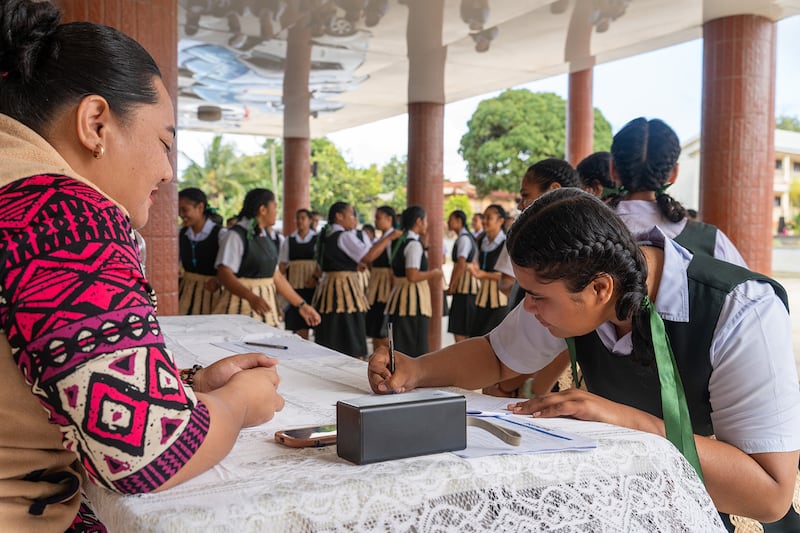
Hopes for the Pacific
“Ultimately we all hope for a safe and secure Pacific. We all hope our islands exist far beyond us, generations beyond us, and for a lot of our young people, there is a real fear their kids will never be able to touch the sand of Tuvalu or Tokelau and that’s unfathomable to think of for people who are so connected to land and ocean.”
She said Tonga was similar to Samoa and other places in the region where there was a risk to food security and people’s ability to sustain themselves is at risk.
“I’ve just come back home and it was funny because we were really keen to go for a swim and we were like ‘oh please don’t rain’ but my mum was like ‘oh please rain because our gardens and our plantations haven’t seen rain in such a long time’.
In Aotearoa the climate warriors have launched a campaign to get endorsements for the fossil fuel non-proliferation treaty. Last year it was endorsed by Wellington City Council and Kapiti District Council.
She said although it was unlikely the coalition government would endorse this treaty, the Pacific Climate Warriors were building momentum and mobilising communities to push for leaders to address these problems.



